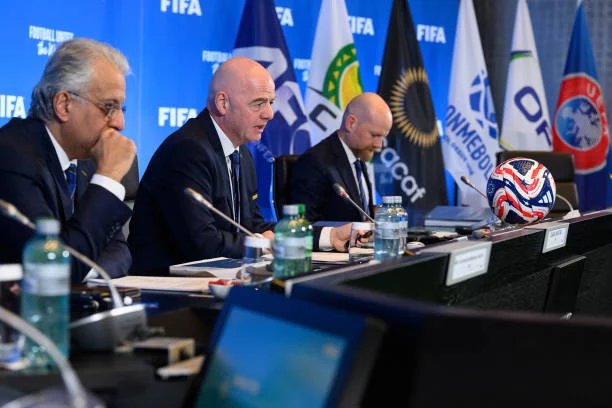FIFA considering 64-team expansion for 2030 World Cup

FIFA is reportedly exploring the possibility of expanding the 2030 World Cup to 64 teams, despite the tournament already set to feature 48 nations for the first time in 2026.
According to The New York Times, discussions are underway within the governing body to assess the feasibility of further increasing participation for the centenary edition of the competition.
A historic tournament spanning continents
The 2030 World Cup will be unique in its structure, with Spain, Morocco, and Portugal hosting the majority of matches.
However, in a nod to the tournament’s origins, FIFA has also designated three opening matches to be played in South America—specifically in Uruguay, Argentina, and Paraguay—marking 100 years since the first-ever World Cup was held in Montevideo in 1930.
The proposal to expand the competition has reportedly come from Ignacio Alonso, president of the Uruguayan Football Association.
His suggestion to increase the number of teams to 64 has sparked discussions within FIFA, with President Gianni Infantino said to be open to the idea.
Logistical and scheduling challenges
The 2026 World Cup, to be hosted by the United States, Canada, and Mexico, will be the first to feature 48 teams, increasing the number of matches to 104.
The transition from the long-established 32-team format presents logistical hurdles, particularly regarding scheduling and tournament duration.
An expansion to 64 teams would further complicate matters, requiring more matchdays and potentially extending the tournament beyond the current timeframe of just over a month.
Balancing fixture congestion, player welfare, and broadcasting commitments would be a significant challenge for FIFA’s organizers.
Commercial and developmental considerations
From a financial perspective, a larger World Cup would generate additional revenue through increased television rights, sponsorship deals, and ticket sales.
Additionally, expanding the tournament would align with FIFA’s strategy of promoting global football development by offering more nations the opportunity to compete on the world stage.
However, critics argue that further expansion risks diluting the quality of competition, as lower-ranked teams may struggle against traditional footballing powerhouses.
There are also concerns that an overcrowded schedule could affect player performance and overall tournament spectacle.
Decision pending
While discussions are ongoing, no official decision has been made regarding a 64-team format for 2030.
FIFA is expected to conduct feasibility studies before determining whether an expanded tournament is viable.
As the centenary World Cup approaches, FIFA faces a delicate balancing act between inclusivity, logistics, and maintaining the prestige of football’s most celebrated event.




